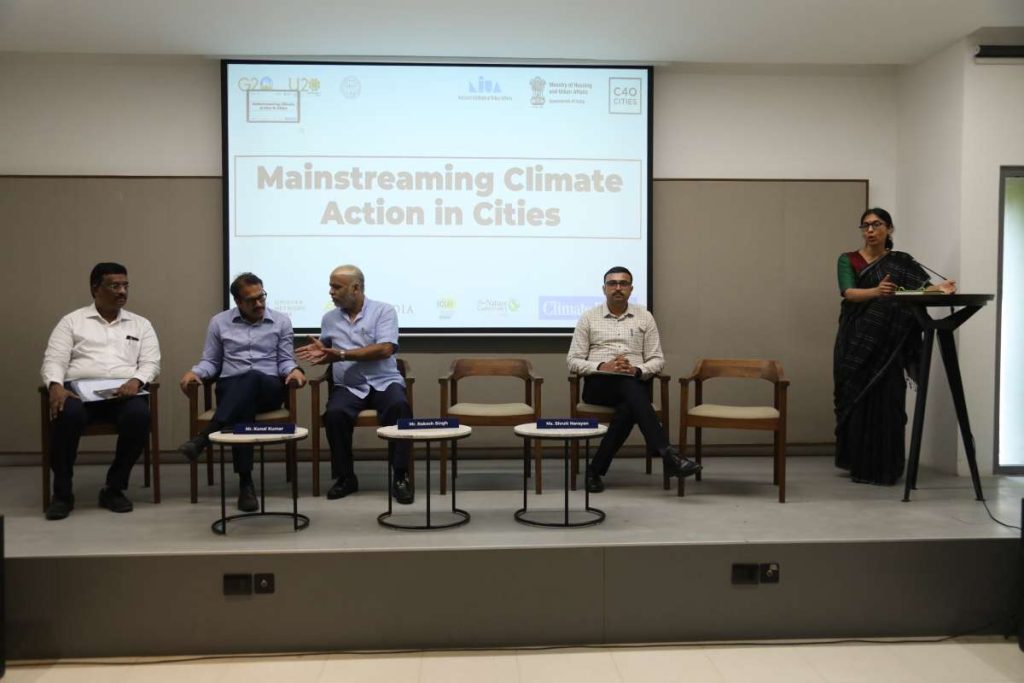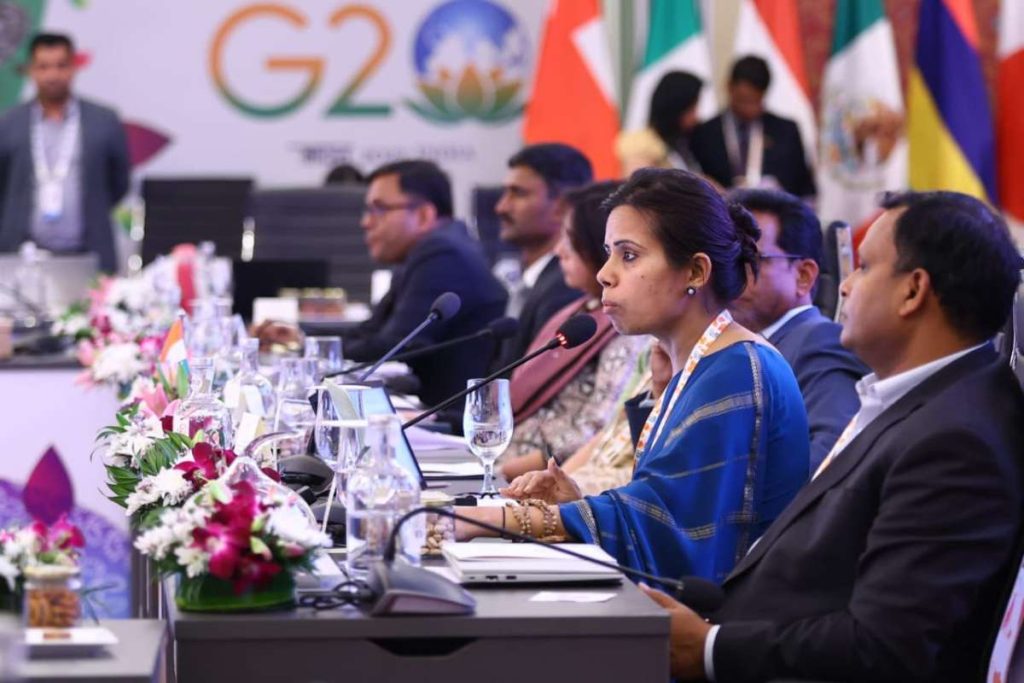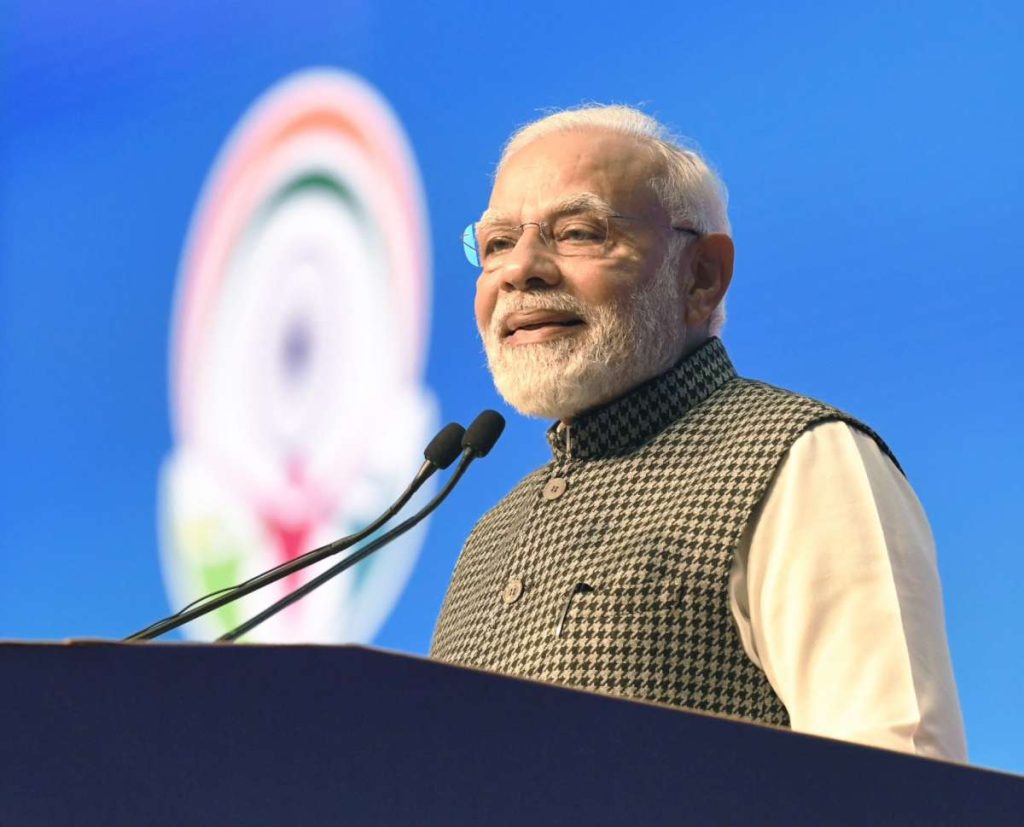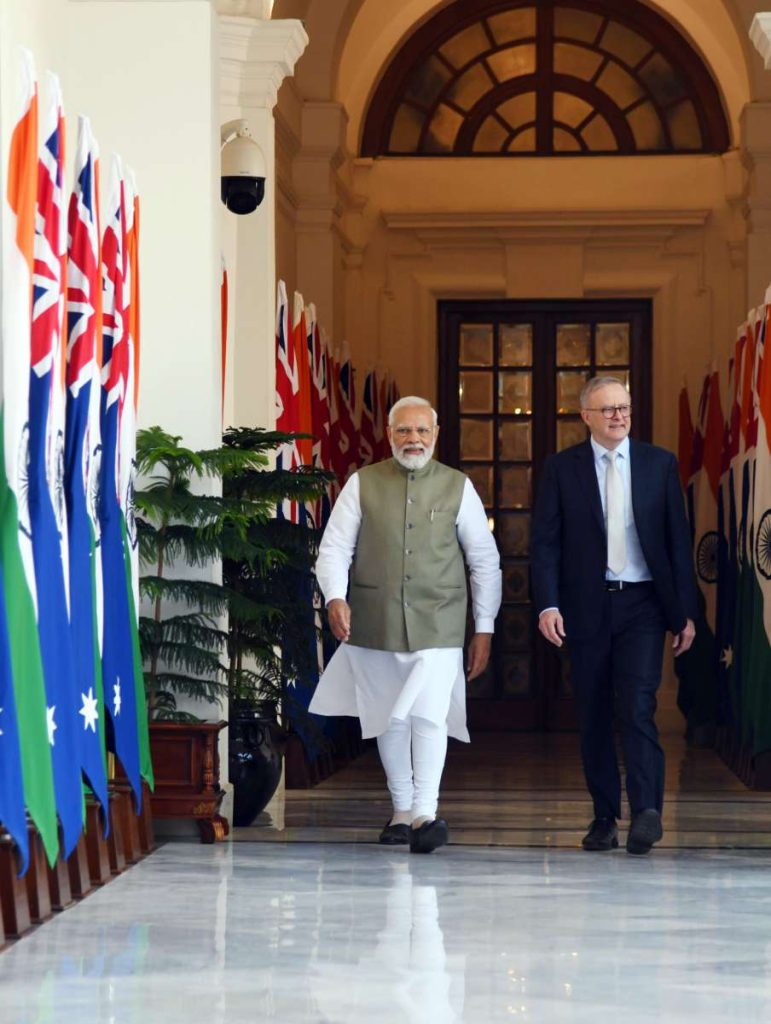As India takes on the G20 presidency with climate change as a key agenda item, it has a valuable opportunity to advance global sustainability initiatives by fostering an international consensus on what qualifies as ‘green’.
Climate change related issues and finding its probable solutions are at the heart of ongoing G20 meetings under India’s presidency. Recently global players met in Bengaluru to discuss “Mainstreaming Climate Action in Cities”.

Three of the six current U20 priority areas — accelerating climate finance, ensuring water security, and encouraging environmentally responsive behaviour – were extensively discussed at the meeting.
The conference was organised by the C40 Cities Climate Leadership Group, together with the India’s Ministry of Housing and Urban Affairs.
The deliberations suggested that the city governments should consider climate impacts when making budgeting decisions while leveraging public-private partnerships, municipal green bonds, and other innovative financing mechanisms where available. Further, it was deliberated that climate action plans should address water security and resilience; institutional and regulatory reforms should be considered where needed to protect and revitalize vulnerable water resources, mainstream integrated urban water resource management, ensure equitable and safe access to water and reduce risk from water-related hazards like flooding, reported NewsonAir.
The key takeaways of this conference will contribute to the U20 communiqué of recommendations, which will be presented to G20 negotiators later this year.
India’s G20 priorities include a “Green Development Pact” with a roadmap of actions over the next decade to tackle climate change and international cooperation on data for development, India’s External Affairs Minister S. Jaishankar had said.

“We would commit to drive a consensus on a Green Development Pact of the G20 Leaders, which will be a blueprint of strong actions for the next decade powering green development all over the world,” he had said earlier.
The actions will include investments in sustainable lifestyles, leveraging green hydrogen for climate action, and accelerating progress on the Sustainable Development Goals (SDGs), he said as was reported by Hindustan Times.
As India takes on the G20 presidency with climate change as a key agenda item, it has a valuable opportunity to advance global sustainability initiatives by fostering an international consensus on what qualifies as ‘green’. This shared understanding would curb information asymmetry and prevent greenwashing while directing capital towards truly green financial activities, wrote Deccan Herald.

Additionally, it would provide a standardised approach for financial institutions, regulators, companies, investors, and policymakers to identify, develop, and finance green projects, thus facilitating India’s green finance efforts.
According to an ORF paper, there are a number of reasons why the G20 should be concerned about, and act on the issue of climate change-induced displacement:
1. Economic Impacts: Climate change-induced displacement can have significant economic impacts on the G20 countries. For example, countries may face increased costs associated with managing the influx of refugees, including providing housing, healthcare, and social services. Additionally, large-scale and unmitigated displacement in any region of the world can have ripple effects across the global economy and cause economic instability and reduced economic growth.
2. National Security: Displacement and migration can exacerbate existing social and political tensions and can potentially lead to conflict and instability.

3. Historical Responsibility: The G20 comprises developed countries that have historically contributed the most to greenhouse gas emissions and therefore bear a greater responsibility for addressing climate change. Displacement is often the result of climate change impacts, such as sea-level rise or extreme weather events, that are largely caused by human activity. As such, the G20 countries should take a leadership role in relocating climate refugees and allowing them to rebuild their lives in their host countries. This is in tune with the idea of ‘common but differentiated responsibilities’ of countries in climate action.
4. Capability: All together, the G20 countries have significant financial and technical resources that can be used to support vulnerable populations. Given the reasons outlined above, it is in the interest of the G20 countries to act on the issue of climate change-induced displacement and harness their capacities to build climate change adaptation systems.
ALSO READ: ‘G20 outcome under India’s presidency will be unprecedented’













